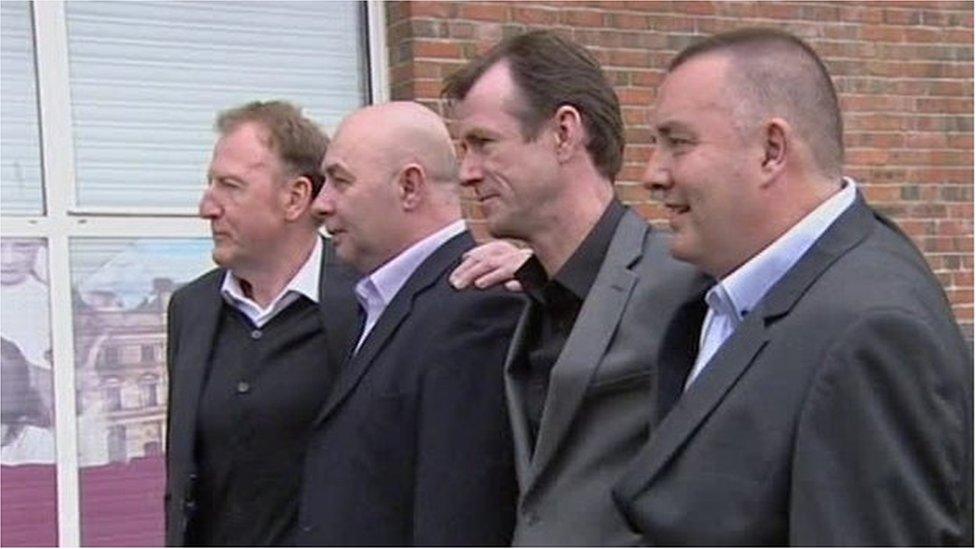Derry Four 'coerced and oppressed' into murder confessions
- Published
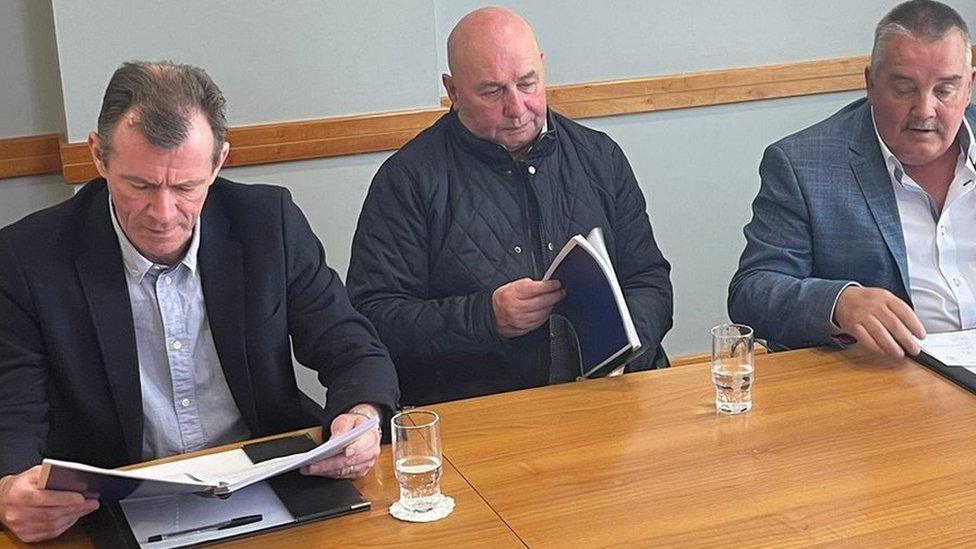
Gerry McGowan, Michael Toner, Gerard Kelly, pictured, were teenagers in 1979
Police unfairly forced confessions from four men wrongly accused of murdering a British soldier, a report has found.
Gerry McGowan, Michael Toner, Stephen Crumlish and Gerard Kelly were charged with killing Lt Stephen Kirby in Londonderry in 1979.
The so-called Derry Four fled Northern Ireland until their acquittal in 1998.
Police Ombudsman Marie Anderson said they had been subjected to "an oppressive and fearful environment" prior to confessing.
Lt Kirby was an officer in the Royal Welsh Fusiliers, who was shot by an IRA sniper when he was on foot patrol in the Abercorn Road area of Derry on 14 February 1979.
The four men charged with his murder were all teenagers at the time.
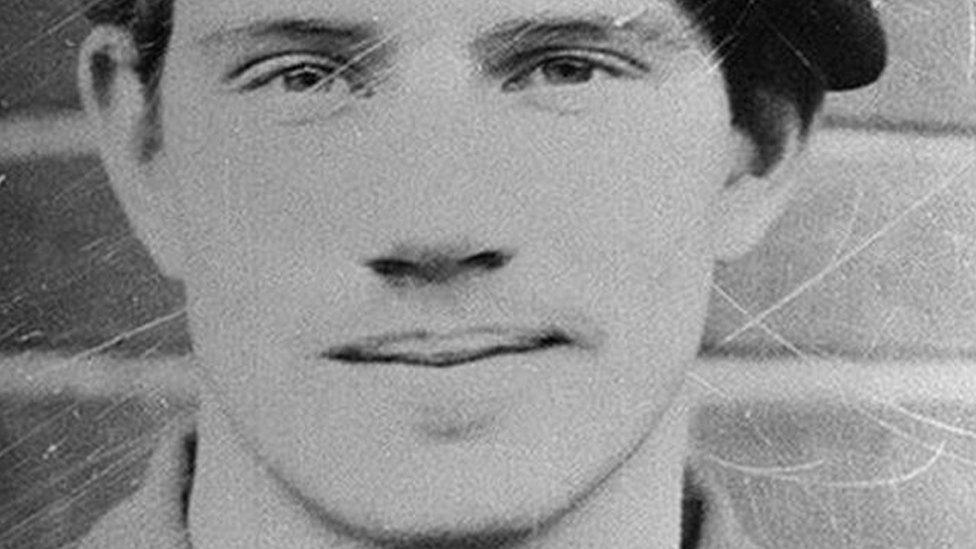
Lt Stephen Kirby of the Royal Welsh Fusiliers was shot in February 1979 in Londonderry
They remained outside of Northern Ireland for more than 20 years before they were acquitted and lived openly in the Republic of Ireland.
During that time no extradition proceedings were ever taken against them.
In her report published on Friday, Mrs Anderson said the four men should have been given legal representation when detained at Strand Road RUC station.
The ombudsman said the men had been subjected to a "coercive and oppressive atmosphere".
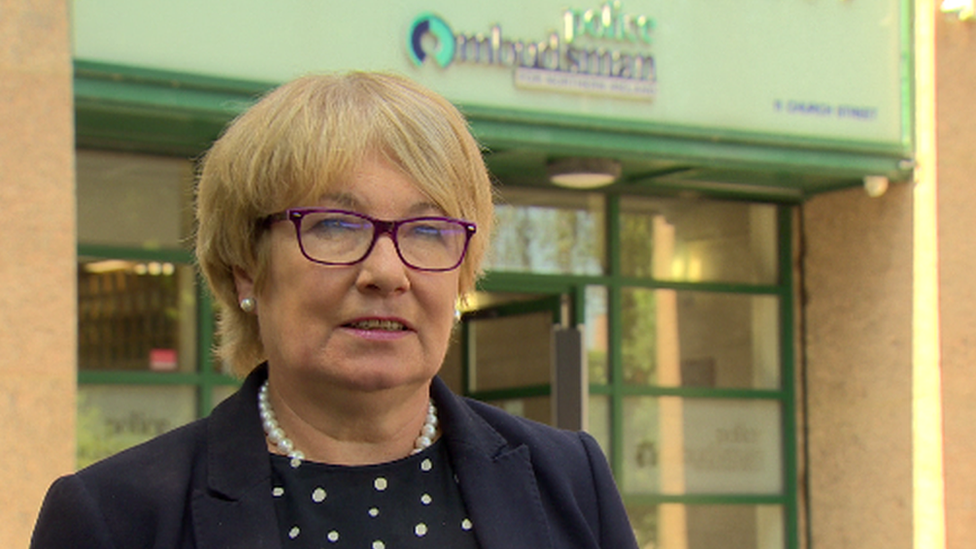
Ombudsman Marie Anderson was critical of the men being allowed to talk with each other during their detention
"I am of the view, given the 'immature age' and vulnerability of these young men, added to the serious nature of the offences, that an opportunity to access legal advice ought to have been afforded to them during their detention at Strand Road RUC Station," Mrs Anderson said.
"I have been unable to establish a rationale as to how this may have delayed or hindered the police investigation".
The men, who have always maintained their innocence, had signed a total of 21 confessional statements in 1979, relating to the murder of Lt Kirby and a number of other terrorist incidents.
Speaking to BBC Radio Foyle, Gerard Kelly said he hoped the report would now bring him closure.
He said he felt "someone had finally taken notice of what was going on for us".
Mr Kelly said he had often reflected on the actions of the police officers who had detained him and the three other men.
"They were not much older than us, they must have been quite young when they interrogated us.
"I often thought they were going home to their own families having interrogated us, knowing we were totally innocent.
"I thought about that when I had my own children, how could someone do that, destroy someone's life, and also that of my family?".
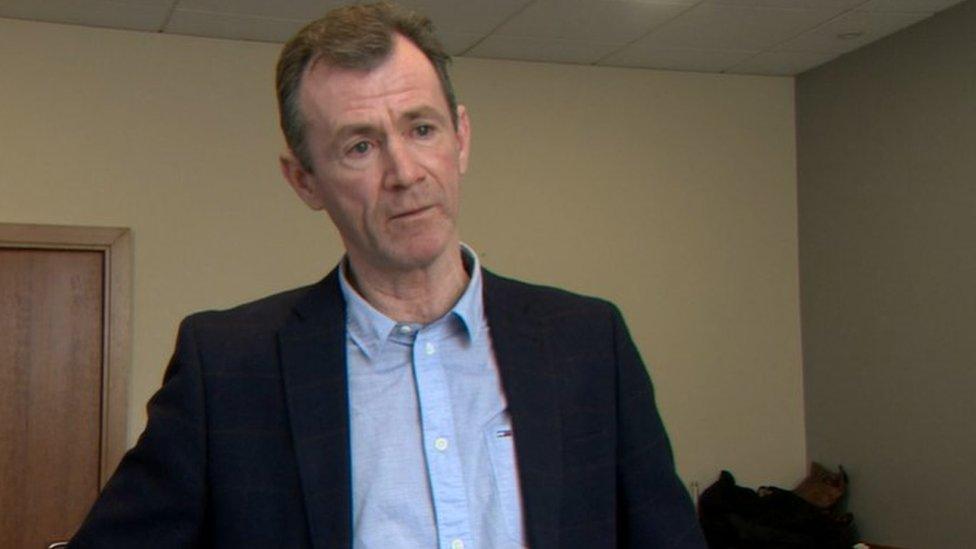
Gerry McGowan says the report helps to give the Derry Four "closure"
Gerry McGowan said that the Police Ombudsman report helped to give the Derry Four "closure".
"But I do still think I did a life sentence because I spent 20 years on the run," he said.
"I wasn't able to see my mother being buried - I missed out on a lot."
'Susceptible to compliance'
Mrs Anderson also criticised the practice of allowing the men to speak to each other during their detention.
On two occasions police allowed suspects to meet to confirm that one had made a statement implicating the other.
"Whether by design or not, I am of the view that this had a profound effect on the coercive atmosphere generated during the interviews and the subsequent securing of 'confessional' statements," said Mrs Anderson.
That along with a number of other factors including the "prolonged and repeated nature of the interviewing", had made the men "susceptible to compliance with those in authority," she added.
In 2003, the men made complaints to the Police Ombudsman's Office alleging that they were subjected to mental and physical abuse during their time in custody.
Their treatment by the RUC was investigated by the Police Ombudsman and in 2012, the matter was referred to the Public Prosecution Service (PPS).
In 2014, the prosecution of two former police officers in connection with the interrogations of 'The Derry Four' collapsed after the PPS received new information from the ombudsman.
In the wake of that collapse, the then Ombudsman, Dr Michael Maguire, commissioned an independent review of the Police Ombudsman's procedures for disclosure to the PPS.
The former Police Ombudsman also referred the matter to the PSNI.
The four men reached a final settlement for damages against the PSNI's chief constable in 2019.
Related topics
- Published28 January 2019
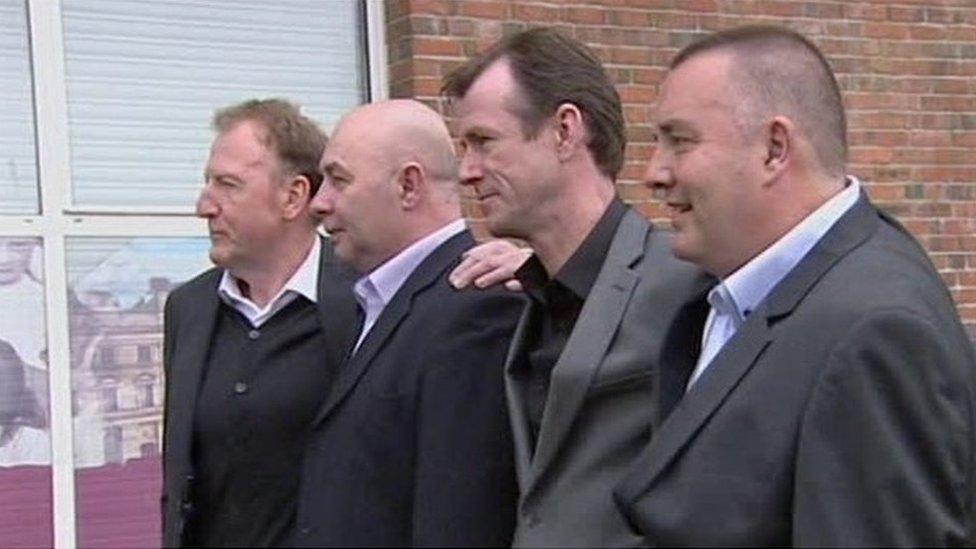
- Published20 September 2016
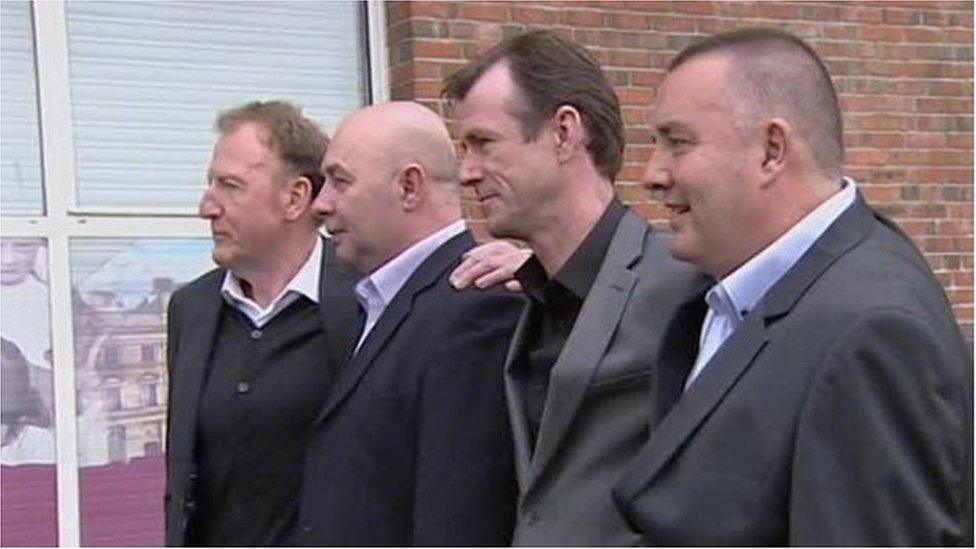
- Published23 August 2016
